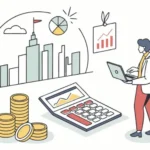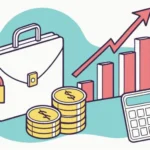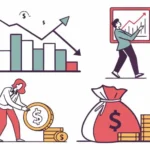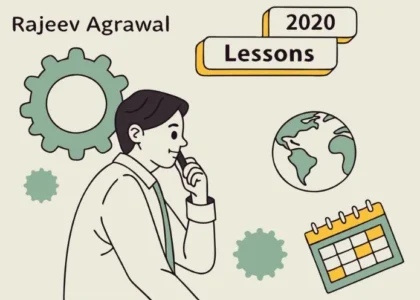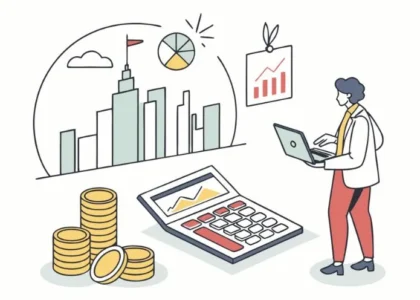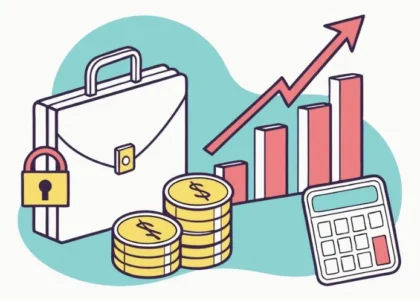I was delighted to attend the annual meeting of Berkshire – for the first time – this year. It was a lot of fun posing with different caricatures of Warren and Charlie. The meeting was also a wonderful opportunity to hear from Warren and Charlie on a wide range of topics. Besides, there were many events both before and after the meeting which made this a “must-have” experience. Here are my key takeaways:
Grow / Build your circle of competence
Warren has famously said, “Everybody’s got a different circle of competence. The important thing is not how big the circle is. The important thing is staying inside the circle.” This quote has been used by some investors to mean that the circle of competence is static and one shouldn’t venture out of that circle of competence. Nothing could be further from the truth. As an analogy, think what would have happened if Amazon had restricted itself to only selling books online.
This was in full display at the annual meeting. There were many questions about the latest innovations from driverless cars and artificial intelligence to cloud technology. What was amazing to me was the breadth and depth with which both Warren and Charlie answered those questions (in the past they have always said we don’t understand technology).
This settled it for me: Just as the moat of a company changes continuously, the circle of competence of an investor also changes continuously. This change happens, because, like a moat, the circle of competence is also relative – relative to other companies and other investors respectively. The circle of competence is the moat that an investor brings to the game of investing. The more an investor works to grow/build his circle of competence, the higher the probability of success in investing.
Technology is eating the world
For a long time, value investors have talked about not investing in technology, because it changes too quickly. Warren in his annual letters has talked about, “..a business that constantly encounters major change also encounters many chances for major error. Furthermore, economic terrain that is forever shifting violently is ground on which it is difficult to build a fortress-like business franchise.”
Read moreIn the annual meeting, Warren brought up the fact that the top five companies by market cap (Apple, Alphabet, Microsoft, Amazon, Facebook) are all technology companies. Not only are these companies very profitable (and hence high market cap), they also take almost no capital. No wonder, the world is awash in capital with few good places to put it to work (my interpretation).
Another aspect about the top technology companies, which is not appreciated as much, is that these companies have a very high business-to-consumer (b2c) component. This b2c component gives them a franchise-like characteristic as consumer behavior is not easy to change (Try changing a tea aficionado to coffee or vice versa). This was also the crux of the thesis for Berkshire investing in Apple.
When you find a company that has a long runway, buy it (don’t nickel and dime the price)
Warren and Charlie both talked about missing some of the big ideas they had. Specifically, they talked about missing Walmart in the 1980s. They knew that Walmart would do very well for a long period. However, the price ran up a few percentage points and Berkshire stopped buying Walmart. Prices didn’t come down subsequently, and Berkshire missed the opportunity to invest big in Walmart.
Another big miss was not investing in Google in the 2000s. Both, Warren and Charlie, saw that Google is a unique company. Geico was paying tens of dollars to Google for every ad click. They also knew that management is first-rate. However, they never acted on the insight.
Similarly, a lot of investors have missed investing in Berkshire. Berkshire always seemed a little too expensive to buy. They were like the donkey reaching for a carrot which is tied to it. As the donkey moves, the carrot moves, and the donkey never gets the carrot. Luckily, I graduated from being a donkey and bought some Berkshire. Unfortunately, though, I have played this donkey and carrot game with too many other opportunities with the result of a donkey – missing my carrot.
To be clear, I am not arguing for buying good companies at any price. Most of the time, the market prices these companies appropriately (or maybe more than what is appropriate). I am only suggesting that if a good company – with a long runway – is in the ballpark of your buying price, don’t worry too much about the last few percentage moves in price.
Berkshire will do well over time
Warren has said for decades now, that Berkshire’s future returns will be lower than what they have been in the past. The last few years have proven that in spades. Besides, Berkshire has under-performed the metric that they have used in the past as a rough proxy of value growth – Growth in book Value of Berkshire vs S&P 500. However, this metric has become less relevant as Berkshire has increasingly moved from owning investments to running various businesses.
It gets even more confusing when Warren says in his annual letter, “My advice to the trustee couldn’t be more simple: Put 10% of the cash in short-term government bonds and 90% in a very low-cost S&P 500 index fund.” Since Warren is not recommending Berkshire stock, people get confused about whether he is implying that the S&P 500 will do better than Berkshire. Warren clarified in the meeting that owning one single stock may cause more volatility than an index hence his preference for the S&P 500.
Charlie, however, was blunt. He is recommending to his heirs, “Don’t be so stupid as to sell Berkshire stock.”
I will go with Charlie on this one. Berkshire is a wonderful group of businesses in diverse fields. Even under the worst-case scenario (short of Armageddon), Berkshire does well. Besides, if it is Armageddon we don’t have to worry anyway!
Lastly, I encourage you to compare the relative performance of Berkshire stock price vs S&P 500 over 5, 10, 15, 20 years or longer period. You will get your answer. I did it and got mine.
Sign me up for the annual pilgrimage
This was my first visit to Omaha. Before the journey, I have always wondered why Berkshire’s annual meeting is such a big deal. Having visited once, I can tell you why:
- There is a lot to learn from fellow Berkshire shareholders. They are grounded, considerate, and eager to learn and teach. They embody the ethos that in my mind is the biggest contribution of Warren and Charlie to society, “Doing well by doing good.”
- There are a lot of events both before and after the meeting which allows good networking opportunities and meeting other investors.
- Warren and Charlie are among the best learning machines. It behooves us to learn as much as we can from them while they are still in their prime!
I look forward to reporting lessons in the future as I have signed up for the annual pilgrimage. Hope to see you there!
show less

